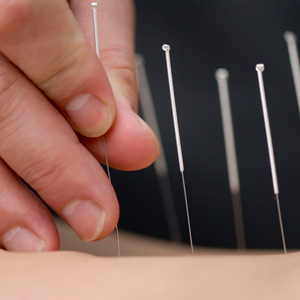Acupuncture in Jefferson Park
Acupuncture has been practiced for about 5000 years in China and other Asian countries. Over the course of these millennia, the ancient practitioners developed many elaborate concepts and systems that reflected the religious beliefs and the medical, social and cultural traditions of their time.
Benefits of Acupuncture
 Clinical evidence shows that acupuncture has its own unique merits which are not the same as those of the high-tech-oriented Western medicine. It is useful for a variety of health problems, but particularly for cases in which Western medicine has little to offer, and especially in the field of pain management. Some of the benefits of acupuncture include:
Clinical evidence shows that acupuncture has its own unique merits which are not the same as those of the high-tech-oriented Western medicine. It is useful for a variety of health problems, but particularly for cases in which Western medicine has little to offer, and especially in the field of pain management. Some of the benefits of acupuncture include:
- Low back pain
- Neck pain
- Arm & hand pain, numbness or tingling
- Dizziness
- Headaches
- Tendonitis
- Muscle pain
- Shoulder pain
- Rotator cuff injuries
- Knee pain
- Carpal tunnel syndrom
It is a safe, low-cost modality which is easy to administer and has no side effects if performed by a trained practitioner; it can be effective by itself or as a complement to other medical procedures.
How Does It Work?
The common feature shared by all the different types of acupuncture is using needles to make lesions in the soft tissue (acu-puncture). Needles and needle-induced lesions activate the built-in survival mechanisms that normalize the smooth function of the body systems and promote self-healing. This process consists of two parts: central and local.
For the central mechanism needling and needle-induced lesions stimulate parts of the brain that activate the principal survival systems of the body-the nervous system, the endocrine system (the hormones and body chemicals), the immune system, and cardiovascular system and normalize the inner workings of the whole body.
These local “needle reactions” directly desensitize the painful nerves and repair the damaged soft tissues. The process of desensitization and tissue repair is often triggered immediately by the “needle reaction” at the needling sites.
Thus acupuncture can be defined as a physiological therapy coordinated by the brain which responds to the stimulations of manual or electrical needling of distant sensory nerves. In relation to this definition, there is one concept that cannot be overemphasized: that acupuncture does not treat any particular pathological symptom but normalizes physiological homeostasis and promotes self-healing. Thus acupuncture, in terms of its therapeutic mechanisms, is nonspecific: acupuncture does not target a particular symptom or disease but treats the body as a whole.
Understanding this nonspecific nature of acupuncture can provide an answer to the puzzling question: what symptoms and diseases can it treat?
As a physiological therapy, the effectiveness of acupuncture depends on (1) the heal-ability of the symptoms or disease(s), and (2) the self-healing potential maintained by each patient.
Results Vary From Person to Person
The same symptom or disease can be completely healable in one patient but only partially healable or even not healable at all in another because the self-healing potential varies from one person to another. Therefore, acupuncture effectiveness varies from person to person. When treating the same symptom or disease, acupuncture therapy might achieve a miraculous result in patient A, partial relief in patient B, and have little or no effect in patient C.
Biomedical acupuncture combines laboratory research and practical clinical experience; it is derived from two great traditions-300 years of Western analytical science and 2500 years of Oriental observation and practice; and it succeeds in providing both the standardized treatment protocol the Western scientific medicine demands and the adjustable personalized approach of Oriental medicine.
Contact us today to schedule an appointment with Dr. Pete, who has extensive postgraduate training in acupuncture.
CONTACT US »

